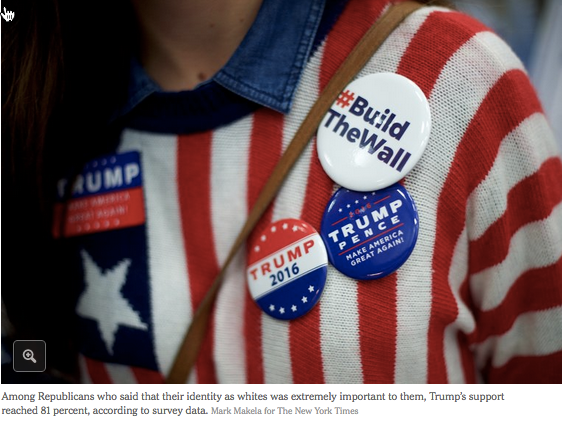In the wake of the presidential election, we’ve all been asking simplistic questions about how Donald Trump won. Was it economics? Was it racism? Was it misogyny? Did it come down to identity? We know that it can’t have been just one thing, and that President Trump’s triumph was a concoction of many things. Nonetheless, several factors came together in a peculiar way, with serious electoral consequences. Millions of white voters began to see themselves more openly not as white supremacists but as white identified.
It is no secret that the president has capitalized on the increasing salience of race and ethnicity in recent years. The furious reaction to many different historical and cultural developments — mass immigration; the success of the civil rights and women’s rights movements; the election and re-election of a black president; and the approaching end of white majority status in the United States — has created a political environment ripe for the growth of white identity politics.
Ashley Jardina, a political scientist at Duke, puts it this way:
When the dominant status of whites relative to racial and ethnic minorities is secure and unchallenged, white identity likely remains dormant. When whites perceive their group’s dominant status is threatened or their group is unfairly disadvantaged, however, their racial identity may become salient and politically relevant.




